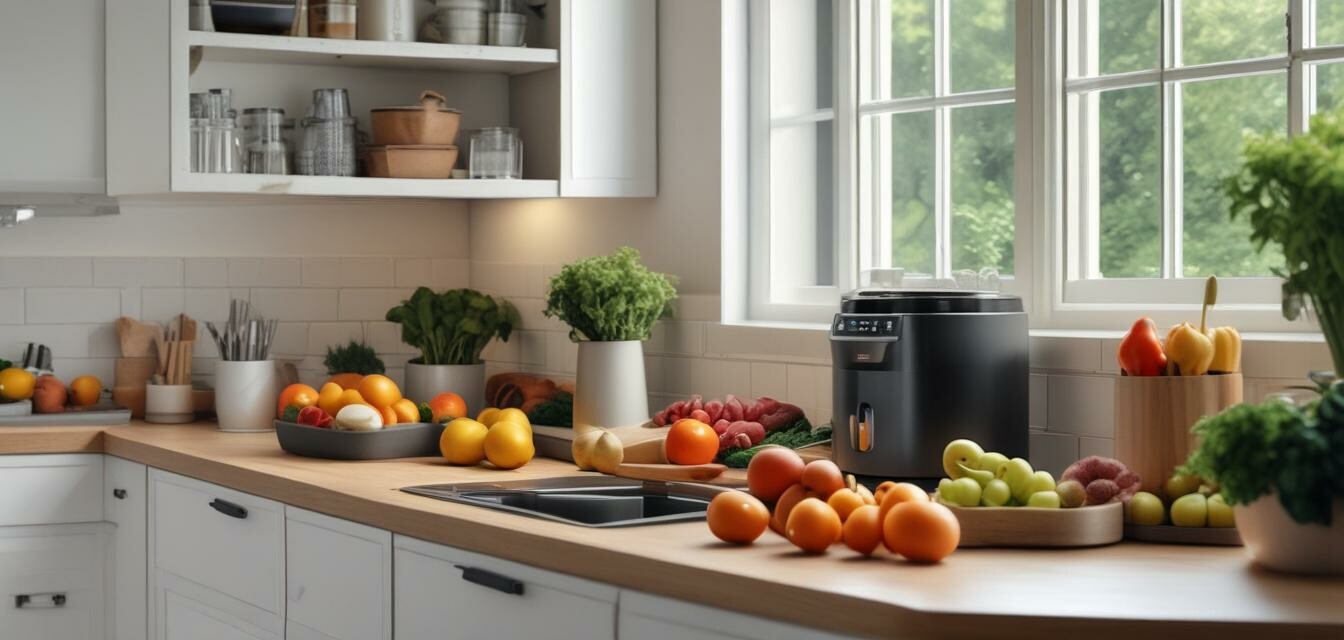
Creating a Zero-Waste Kitchen for Energy Efficiency
Key Takeaways
- Implementing a zero-waste plan can significantly reduce your home’s carbon footprint.
- Energy-efficient appliances contribute to sustainable living while saving money.
- Small changes in kitchen habits can lead to a larger impact on waste reduction.
- Reusables, composting, and smart shopping are essential for a zero-waste approach.
Achieving a zero-waste kitchen is not just about recycling; it encompasses a complete transformation towards sustainability. By integrating energy-efficient appliances, you can reduce both waste and energy consumption, creating a more eco-friendly home. This article will provide practical tips on how to build a zero-waste kitchen while maximizing energy efficiency.
Understanding Zero-Waste Living
Zero-waste living emphasizes minimizing waste and utilizing resources efficiently. By adopting this lifestyle in your kitchen, you can achieve several benefits, including:
- Reducing environmental impact
- Saving money through efficient use of resources
- Promoting a sustainable lifestyle
Benefits of Energy-Efficient Appliances
Choosing energy-efficient appliances is essential for both a zero-waste initiative and maximizing energy conservation. Here are some notable benefits:
- Lower energy bills
- Reduced greenhouse gas emissions
- Improved appliance longevity
Practical Tips for a Zero-Waste Kitchen
1. Embrace Reusable Containers
Replace single-use items with reusable containers. This can include:
- Glass jars for storing food
- Cloth bags for produce
- Bamboo utensils
2. Composting
Composting reduces food waste significantly. Consider the following steps:
- Set up a composter in your kitchen.
- Collect food scraps such as peels and cores.
- Ensure proper aeration and moisture levels.
3. Smart Shopping Practices
Planning your shopping can greatly minimize waste. Here are some tips:
- Create a shopping list to avoid unnecessary purchases.
- Buy in bulk to reduce packaging waste.
- Choose locally sourced and organic products.
Energy-Efficient Appliances to Consider for Your Kitchen
When creating a zero-waste kitchen, selecting the right appliances is key. Here's a look at appliances that help reduce both waste and energy consumption:
| Appliance | Benefits | Energy Saving Tips |
|---|---|---|
| Dishwasher | Uses less water than hand washing | Run full loads only |
| Refrigerator | Keeps food fresh longer, minimizing waste | Ensure proper temperature settings |
| Microwave | Heats food quickly, saving energy | Use for small meals instead of the oven |
Maintaining Your Appliances for Efficiency
To ensure your energy-efficient appliances function at their best, consider implementing the following maintenance tips:
- Regularly clean filters and parts
- Check for leaks in dishwashers and refrigerators
- Monitor energy consumption periodically
Conclusion
Transforming your kitchen into a zero-waste haven aligns perfectly with using energy-efficient appliances. Each step, no matter how small, contributes to sustainability and reduces your carbon footprint. By integrating these tips and practices, you can enjoy a more eco-friendly kitchen while saving money and energy.
Pros
- Significantly reduces waste
- Promotes long-term cost savings
- Improves home sustainability
Cons
- Initial investment in energy-efficient appliances may be high
- Requires a shift in habits and mindset
Learn More
If you are looking for more tips on maximizing your appliance efficiency, check our related articles:
- How to choose energy-efficient appliances
- Guide to sustainable kitchen appliances
- Energy-efficient air conditioners
- Best dishwashers for energy savings
- Top refrigerators for a zero-waste kitchen
